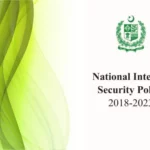Modi’s victory streak, unbroken since 2014, faced unexpected challenges in this election cycle as the Congress-led INDIA alliance made significant gains, signaling a shifting political landscape. Despite setbacks for the BJP-led NDA, Modi’s recent win highlights a troubling shift towards Hindu nationalism, risking social cohesion and democratic values.
Moreover, his party’s absolute majority in parliament for the second consecutive term heralds an era of Hindu nationalism that threatens to undermine the very fabric of India’s diverse society.
Modi’s Victory: Implications for India’s Secular Democracy
The rise of the Bharatiya Janata Party (BJP) to power represents more than just a political triumph. Modi’s victory symbolizes the rise of a movement favoring upper castes. It marginalizes minority communities, especially Muslims. This shift towards Hindu nationalism has led to a worrisome trend of cultural conservatism. In addition, it has intensified misogyny, and a consolidation of state power that bodes ill for India’s secular democracy.
Also More: A Decade of Modi: India’s Democratic and Diplomatic Conundrum
Divisive Policies and Rhetoric of Modi’s Leadership
Throughout his tenure, Modi has employed divisive rhetoric and policies that exacerbate existing fault lines within Indian society.
Modi’s populist approach appeals to a segment of the population. It deepens divisions based on religion, caste, region, and language. Rather than bridging these gaps, Modi has exploited them for political gain, pitting communities against each other in pursuit of power.
One of the most alarming aspects of Modi’s leadership is his government’s treatment of India’s Muslim population. From denigrating them as “termites” on the campaign trail to turning a blind eye to incidents of lynching, Modi’s right-hand man, and by extension, his administration, have fostered an atmosphere of fear and discrimination for Indian Muslims. Their dwindling representation in parliament reflects their status as political outcasts. The political class ignores them, catering to the majority Hindu population.
Moreover, Modi’s autocratic tendencies pose a grave threat to India’s democratic institutions. His popularity, buoyed by a penchant for strongman rule, has emboldened him to stifle dissent and curtail freedom of expression. The BJP’s aggressive tactics, including the demonization of political opponents and the suppression of independent voices, undermine the very foundation of a functioning multi-party democracy.
The recent escalation of tensions with Pakistan over Kashmir underscores Modi’s willingness to prioritize nationalist fervor over diplomatic prudence. By recklessly raising the stakes with a nuclear-armed neighbor, Modi not only jeopardized regional stability but also diverted attention from pressing domestic issues, such as economic stagnation and social inequality.
Economic Inequality and Corporate Influence Under Modi
Furthermore, Modi’s cozy relationship with big business has only exacerbated India’s entrenched inequalities. The BJP’s opaque donations benefit the wealthy, disadvantaging the poor, reinforcing a system favoring wealth over welfare. Despite paying lip service to reducing inequality, Modi’s policies have only served to widen the gap between the haves and the have-nots. This has exacerbated social tensions along caste and religious lines.
Also See: India’s Lok Sabha Elections 2024: A Roadmap
Modi’s Victory: The Need for Opposition Revival and Reform
Given these challenges, the opposition, especially the Congress party, must radically transform to challenge Modi’s dominance. Moreover, they should focus on a vision for an egalitarian society benefiting all Indians, rather than symbolic gestures. This requires a departure from the status quo and a commitment to grassroots organizing and inclusive policymaking.
Despite their number, Muslims are political orphans in India. They are shunned by a political class fearful of losing support from the majority Hindu population.
Before the election, Muslims held only 24 seats in the parliament, just 4% of the total. This is their lowest representation since 1967 and is likely to decrease further.
The political marginalization of Muslims mirrors broader exclusion and discrimination against minorities under Modi’s leadership. Beyond the halls of parliament, Muslims endure systemic biases in employment, education, and access to justice. Their status as second-class citizens are not only a moral failing but also a threat to India’s social cohesion and democratic values. Unless addressed, this alienation will continue to fuel resentment and undermine the country’s stability.
Modi’s victory in the recent election represents a dangerous turning point for India. His brand of Hindu nationalism, characterized by cultural chauvinism and authoritarian tendencies, threatens to undermine the country’s secular democracy and exacerbate social divisions. It is incumbent upon all those who cherish India’s pluralistic ethos to resist the tide of majoritarian politics and work towards a more inclusive and just future for all.
The views expressed in this article are the author’s own. They do not necessarily reflect the editorial policy of the South Asia Times.
Sehr Rushmeen is a freelance researcher based in Islamabad, specializing in Strategic Nuclear Studies, Artificial Intelligence in Warfare, and South Asian Politics, with a particular focus on the South China Sea region. On X, formerly Twitter, @@rushmeentweets.

![Modi's victory: Narendra Modi arrives at BJP headquarters in New Delhi on June 4. [Image via Adnan Abidi/Reuters]](https://southasiatimes.org/wp-content/uploads/2024/06/image-1717594386.webp)

![Erosion of India's democracy: Mohandas K. Gandhi, India's Prime Minister Narendra Modi and Hindu extremist Nathuram Godse, who assassinated Gandhi. [Washington Post illustration; AP]](https://southasiatimes.org/wp-content/uploads/2024/04/imrs-1-150x150.webp)
Add a Comment